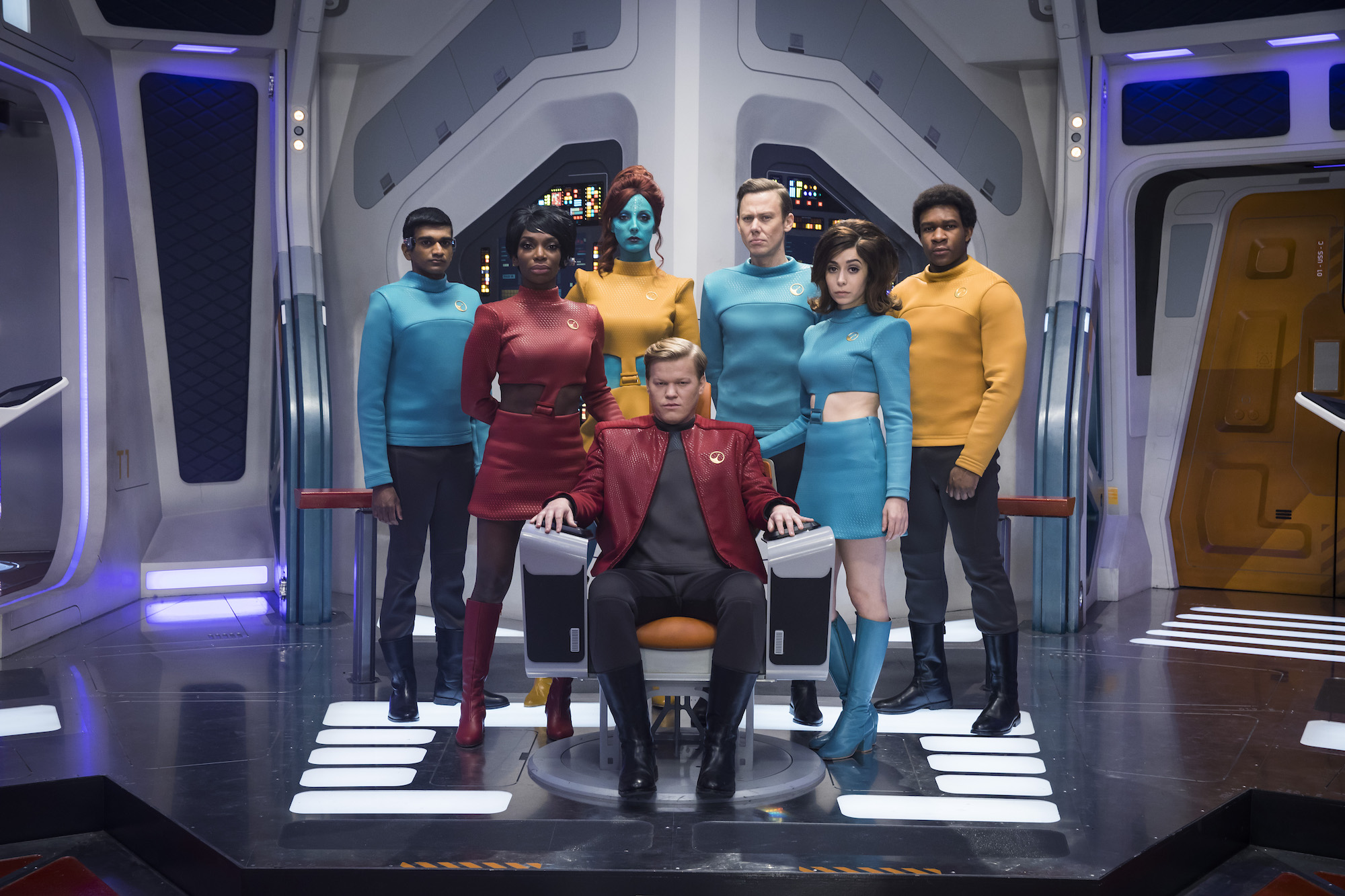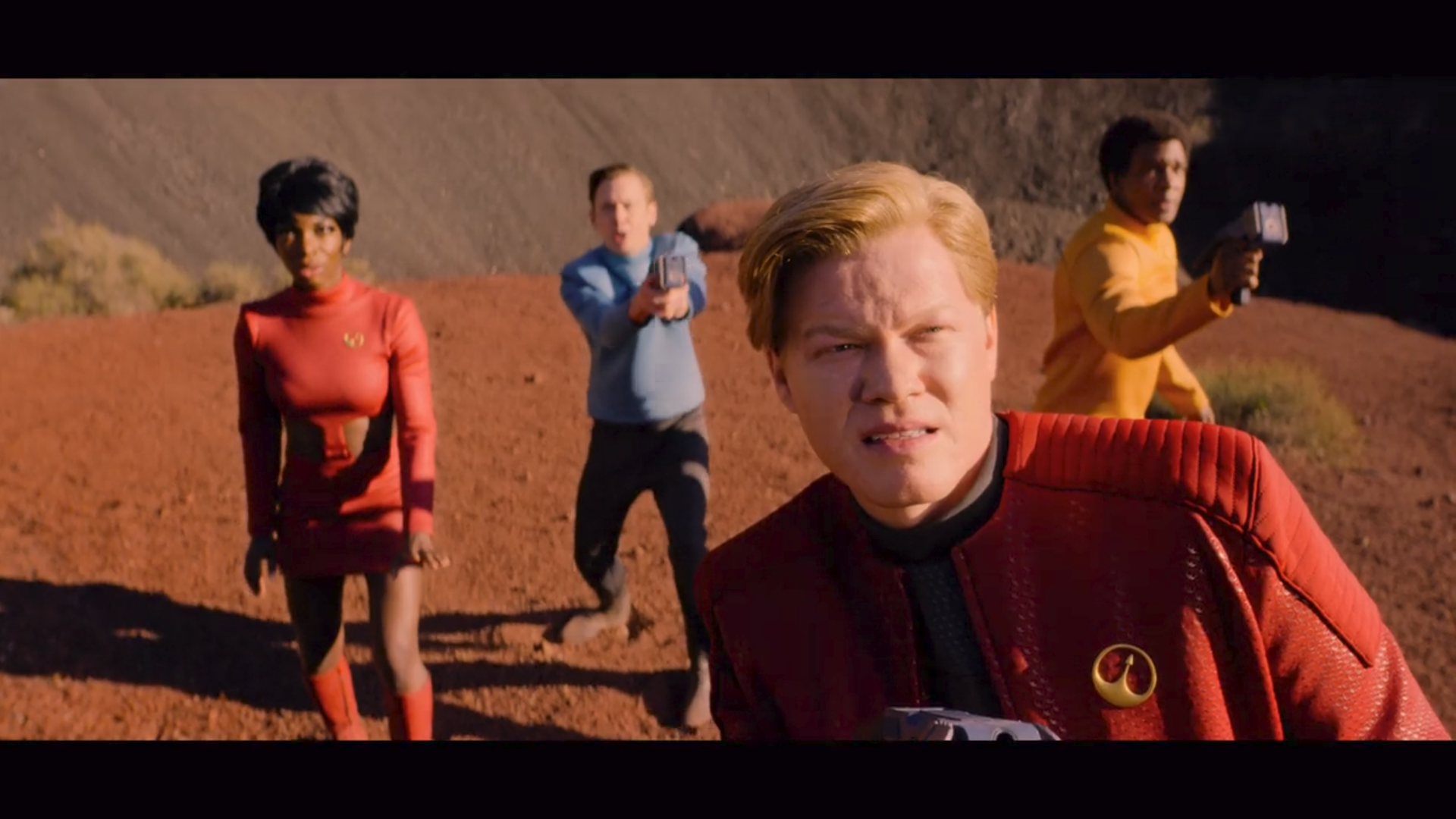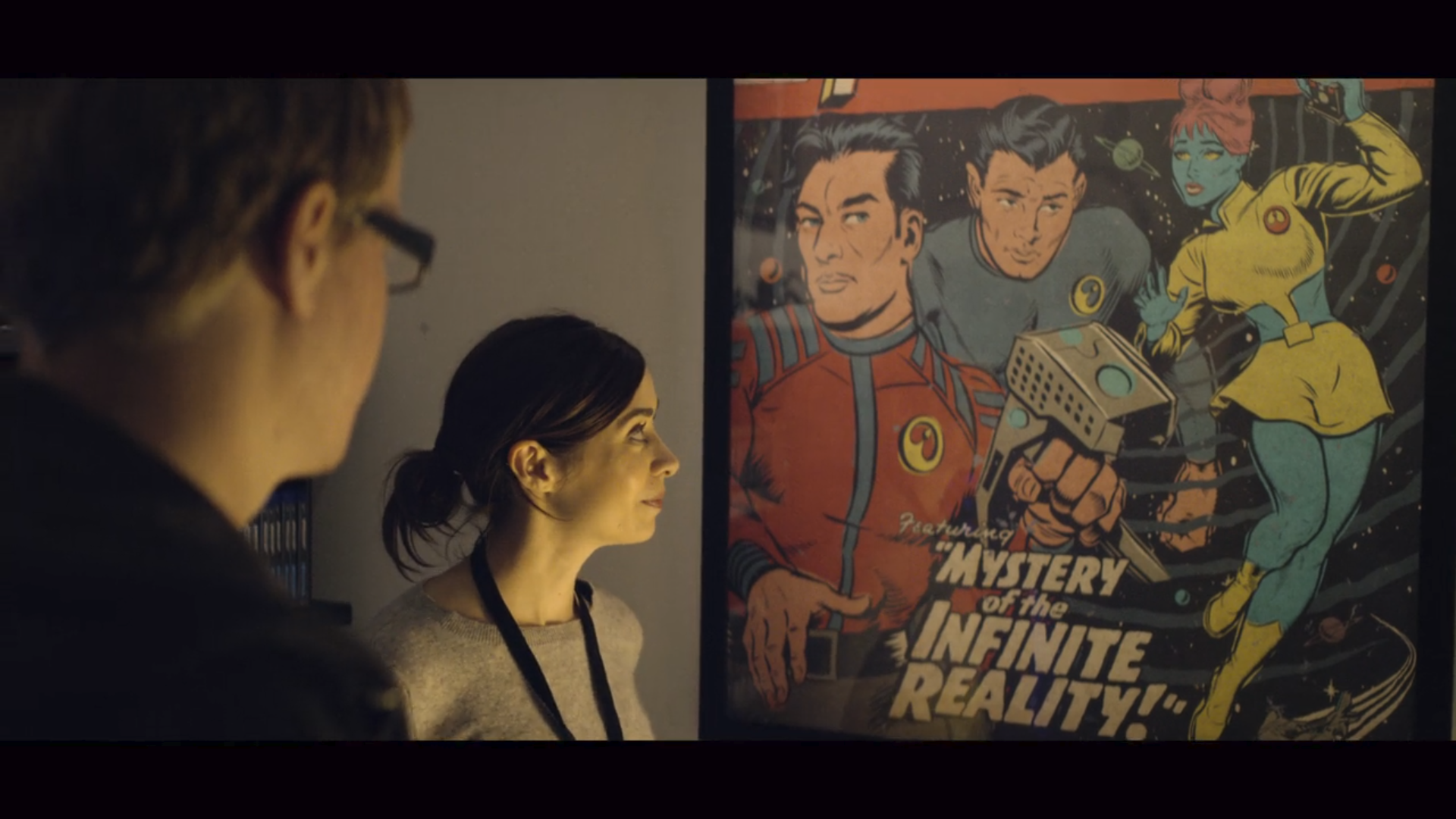Black Mirror gives us a VR roleplaying nightmare
We explore the fourth season's game-y episode, 'USS Callister'.

If you were wondering what the most horrifying version of Star Trek: Bridge Crew would look like, I recommend watching the fourth season of Black Mirror, which debuted on Netflix globally yesterday. The dark, technology-focused anthology series has a precedent for game-infused storytelling, and in the opening episode 'USS Callister', a Star Trek-style VR roleplaying game is an endless nightmare for its unwilling participants. Spoilers follow.
In the episode, Robert Daley (Jesse Plemons) is chief technical officer at Callister Inc, a high-end VR developer that makes a product called Infinity, which sounds a bit like Ready Player One meets No Man's Sky. Daley is downtrodden and surrounded by employees who don't take him seriously. At night, he puts on a little VR widget and enters his own modded server of Infinity, where he becomes the Shatner-esque captain of the USS Callister based on Daley's favourite show, Space Fleet (basically Star Trek). In his VR world, Daley always gets to make the right decisions in the heat of battle. He always gets to kiss the girl(s), and his crew will always cheer for him at the end of the episode.
The Callister's crew of digital avatars is composed of those who belittle Daley at work, including its CEO, James Walton (Jimmi Simpson), who acts as the face of the company and takes credit for his genius. Daley owns a device that lets him import his colleagues into the game by providing a sample of their DNA. Once used, a digital clone of that person, along with their consciousness, is transported onto the bridge of the USS Callister. They're then forced to participate in Daley's ongoing game of Space Fleet, and when it stops, the crew is imprisoned aboard the Callister until Daley returns. It's like naming and shaping a custom character based on someone you know in XCOM or The Sims, taken to the most horrifying extreme.
And it's exactly what happens to Nanette Cole (Cristin Milioti), a new employee at Callister Inc who took the job because she was a fan of Daley's work. The company's office environment is rife with well-observed, inappropriate behaviour, like Walton's overly familiar attitude towards Nanette, and a cringeworthy moment where he touches and compliments her sweater while sitting on her desk. Daley likes Nanette, but after hearing her say she has no romantic interest in him, he imports her into the game by taking her coffee cup from the trash and using this sample of her DNA.

Back in the game, when Nanette refuses to play ball and get into the spirit of Space Fleet, Daley tortures her. He also likes to humiliate and torment Walton for his real world behaviour, and even went as far as importing Walton's son into the game, only so he could push the boy out of the airlock and make this digital consciousness of Callister's CEO experience it.
Clearly, Daley has some dreadful personality problems, exacerbated by his frustrations at work. 'USS Callister' touches upon ideas of male entitlement, and it's particularly interesting to see that explored at the intersection of games and sci-fi. Daley has created a VR world that can fulfil his fantasies and exorcise his frustrations with his colleagues in unhealthy ways. It's a multiplayer game with unwilling participants, driven by the obsessive, cruel nature of its master.
Crash landing
The rest of the episode shows how the crew of digital replicas try and crash the ship into a firewall to free themselves. The idea of digitally cloned consciousness has been explored before in Black Mirror with the episode 'White Christmas', where handsome Jon Hamm will trap you in an egg-shaped device then torture you until you agree to become your own Siri-style digital servant. Here, it's just as chilling, but also funny—the crew bitches about Daley behind his back, badly behaved crew members are turned into ugly aliens and a wall of the Callister's bridge swivels around to reveal a secret bar to help them drown their sorrows. Motivated by Nanette, they shatter his fantasy and delete the mod, leaving Daley to watch as his creation vanishes around him.
The biggest gaming news, reviews and hardware deals
Keep up to date with the most important stories and the best deals, as picked by the PC Gamer team.

Here's the other thing: 'USS Callister' is a great Star Trek pastiche. The production values are impressive, and the lighting and colour palette are spot-on. You sense the cast are very game for it, even if the crew doesn't want to be there—and its opening, presented in 4:3 with a '60s-style visual filter, both looks the part and shows us the USS Callister's adventures as Daley sees it.
Crucially, like 'Playtest', what's great about USS Callister is that it still celebrate games, when it could teach audiences to fear them. At the end of the episode, when Daley's fantasy is broken, the Callister's crew enter Infinity's procedurally generated universe, wearing more contemporary outfits. The episode doesn't say that the game is bad—just the twisted creator and the way he uses it. Indeed, with Daley removed, the crew faces a universe of infinite possibilities. That's until they encounter another human player for the first time, clearly voiced by Breaking Bad's Aaron Paul, who belligerently asks if they either want to trade or have virtual sex. They can't escape the reality of online.
What's interesting about Black Mirror when it does episodes like this, or 2016's Westworld TV series, is how they're inspired by the world building and design of games, as well as what the creators' intentions mean for their players. They're more about the thinking behind games than the games themselves—and the potential in that to tell new types of stories in other media is huge. It possibly represents a generational shift in who's writing television and film versus ten years ago, as creators who are familiar with modern games apply these different elements to their work. In 'USS Callister', games are a perfect framework for a dark drama about control.


